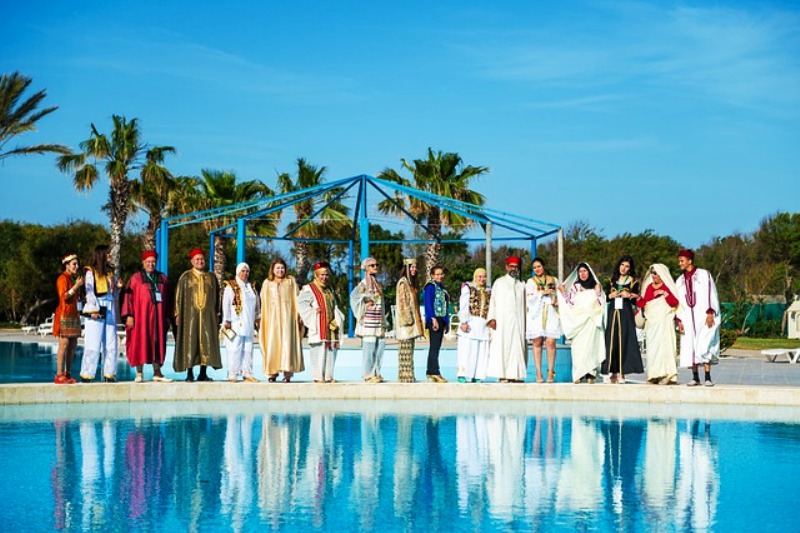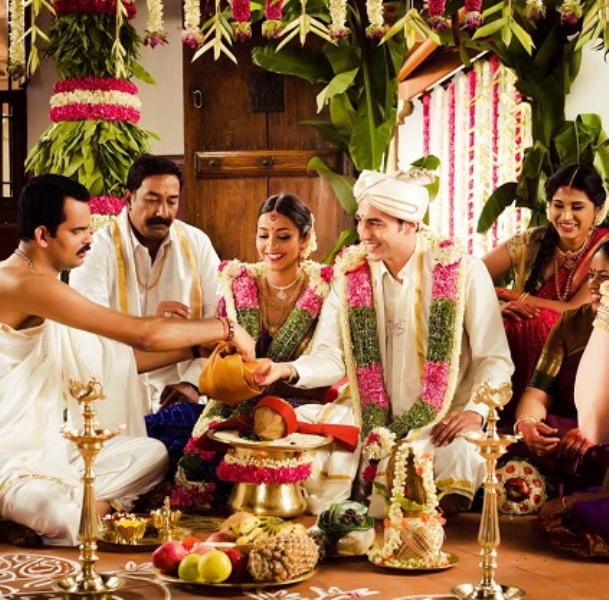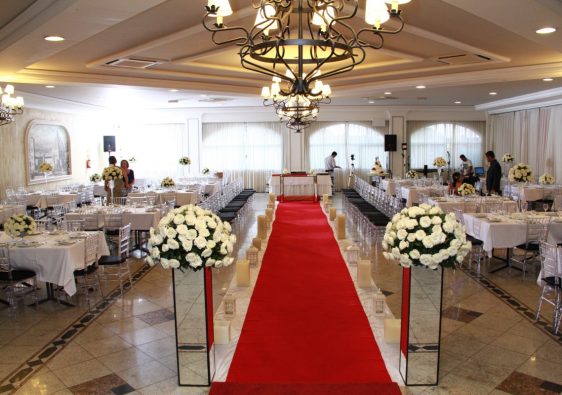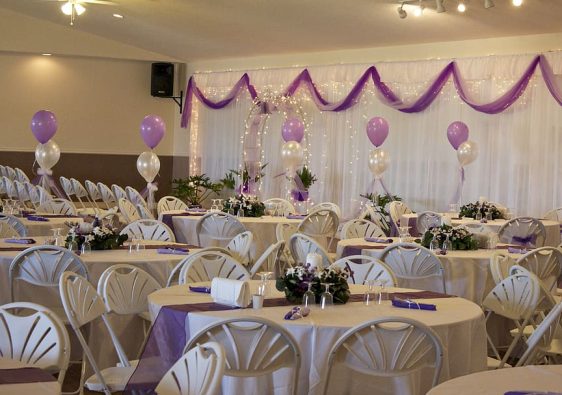Tunisian weddings are elaborate, joyful affairs full of unique customs and celebrations. If you’re attending a traditional Tunisian wedding or want to incorporate Tunisian elements into your own ceremony, here’s an in-depth look at how these festivities typically unfold.
Tunisian Wedding Traditions
Tunisian wedding celebrations stem from a blend of Amazigh (Berber), Arab, Muslim, and French influences. They involve many lavish rituals and ceremonies meant to bring good fortune, fertility, and blessings to the bride and groom. Traditions vary by region but common elements include henna rituals, separation traditions, opulent costumes, and symbolic ceremonies.
Seeking Blessings with Henna
The wedding preparations kick off once the engagement is announced and agreed upon by both families. A few days before the wedding, the bride takes part in a traditional henna ceremony. Intricate temporary henna tattoos are applied to the bride’s hands, feet and other parts of her body. This ritual is thought to impart luck, joy and fertility. Female wedding guests can also participate in henna decorating.
Pre-Wedding Separation Rituals
In the final days before the wedding celebration, the bride and groom are separated and not allowed to see each other. This heightens the anticipation and excitement for their reunion at the wedding. The separation period also allows for ritual bathing, hair removal, and beautification traditions. Beauty treatments like body sugaring may be given to the bride.
Arriving in Style
On the big day, the groom and his family process to the wedding venue accompanied by musicians and singers. In some regions, the groom arrives riding a decorated horse. The bride makes her grand entrance into the women’s section of the hall carried on an ornate carriage, throne or palanquin. This entrance often involves fireworks and drum processions.
The Traditional Wedding Ceremony
The Muslim wedding ceremony includes a reading of the opening verse of the Quran called the Fatiha, the signing of the marriage contract, and a short sermon or words of wisdom for the couple. The bride and groom sit separated by a screen for the ceremony. Once they are declared officially married, the feasting and public celebrations begin.
Lavish Receptions

Tunisian wedding receptions are known for being elaborate affairs with nonstop food, drink, music and entertainment. Guests are welcomed into richly decorated wedding halls and treated to multi-course traditional Tunisian cuisine including appetizers like brik, vegetable couscous, slow-cooked lamb, and assorted Tunisian pastries. Professional dancers and musicians perform traditional Tunisian music and entertain throughout the evening.
Costume Changes
During the wedding reception, it is common for the bride to wear several extravagant outfits representing the different regional bridal fashions of Tunisia. She may don up to 7 ornate dresses over the course of the evening to pay tribute to customs from the various parts of the country. The bride’s hair, makeup, jewelry and accessories are all changed with each new ensemble.
Symbolic Rituals and Traditions
Tunisian weddings involve many distinctive and meaningful rituals. For fertility, the bride may cradle eggs in her arms. Rosewater and perfume are sprayed on wedding guests as they enter. Candles are lit by all the unmarried women in attendance in hopes the candlelight will help them find husbands. The bride also personally hands out nuts and sweets to unmarried female guests to spread her good fortune.
Late Night Celebration
The wedding festivities continue late into the night, often lasting until the break of dawn the next morning. Guests join together in communal dancing, sing traditional wedding songs, give additional blessings and well wishes to the newlyweds, and keep feasting until the wee hours. With nonstop revelry all night long, Tunisian weddings are unforgettable affairs.
From symbolic henna rituals to lavish costumes and noisy late-night celebrations, traditional Tunisian weddings provide a vibrant window into Tunisia’s rich culture. If attending or incorporating Tunisian customs, be prepared for a magical and meaningful celebration.




